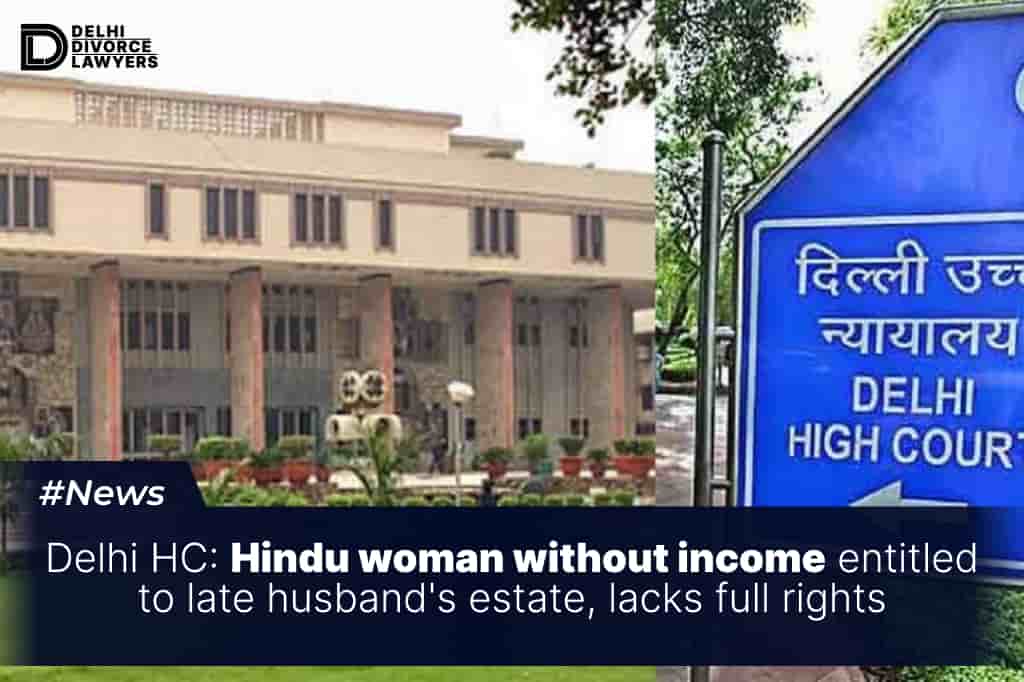The Delhi High Court has provided clarification on the inheritance rights of Hindu widows who receive a life estate from their late husbands.
“In the case of Hindu women, who may not have their own income, receiving a life estate given to them by their husbands—who may predecease them—is an essential safeguard for their financial security during their lifetime. Such security is essential to ensure that the woman is not dependent on her children after the demise of the husband. Under such circumstances, the wife has complete rights to enjoy the property during her lifetime. She can also enjoy the income from the said property throughout her life. However, it cannot be held that the entire property should be construed as maintenance, giving the wife absolute rights over the property after the death of her husband,” the Court observed.
Justice Prathiba M. Singh’s bench emphasized that although these widows have the right to enjoy the property and its income during their lifetime, they do not hold complete ownership of it after their husband’s death.
While affirming the widow’s right to enjoy the property and its income during her lifetime, the Court clarified that this does not confer absolute ownership after her husband’s death. “In this case, the wife’s rights in the subject property clearly devolved upon her only under a Will. She did not ‘possess’ any rights in the property prior to her husband’s death; she acquired rights solely under the Will. She had the right to enjoy the income generated from the subject property during her lifetime, and this cannot be considered an absolute interest,” the Court said.
The case revolved around a dispute among siblings concerning the division of their father’s estate following his passing in 1989. According to the father’s will, his property was bequeathed to his wife, providing her with a life estate and the right to collect rent. Subsequently, certain siblings initiated legal action contesting the widow’s claim to the property. The Trial Court ruled in favor of the siblings, stating that the widow became the sole property owner after her husband’s death.
However, upon appeal, the High Court overturned the Trial Court’s decision, citing the absence of a separate will executed by the widow during her lifetime. The Court pointed out that her property rights were solely based on her husband’s will, with no prior entitlements. Furthermore, the Court underscored the clauses in the husband’s will explicitly prohibiting the widow from selling or transferring the property.
The Court said, “The Will categorically states that the wife has no right to sell, alienate, or transfer the subject property. Given this position, to assert that upon the death of her husband she became the absolute owner of the subject property and could have sold or alienated the property would contradict the clear intent expressed in the Will as also the intention of the deceased mother clearly expressed through her conduct that she did not execute a Will or sell the property during her lifetime.”
While setting aside the Trial Court Order dated September 26, 2017, the Court said, “In the said case too [while referring to Munni Devi Alias Nathi Devi (Dead) v. Rajendra Alias Lallu Lal (Dead) (2022 INSC 590)], the Will was executed on 30th July, 1949, prior to the enactment of the 1956 Act. Further, the property in question was part of the HUF, and not self-acquired property. Hence, the same decision is also clearly distinguishable on facts, and is not applicable.”

